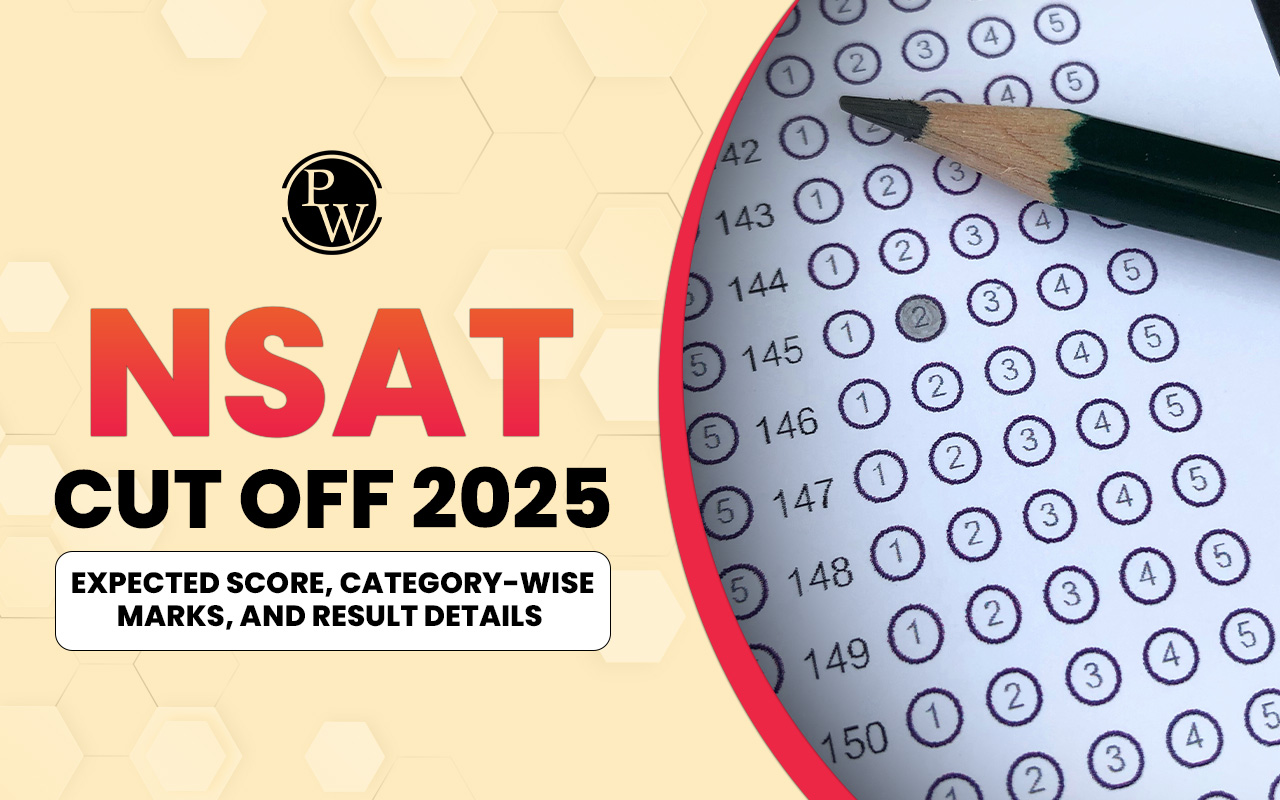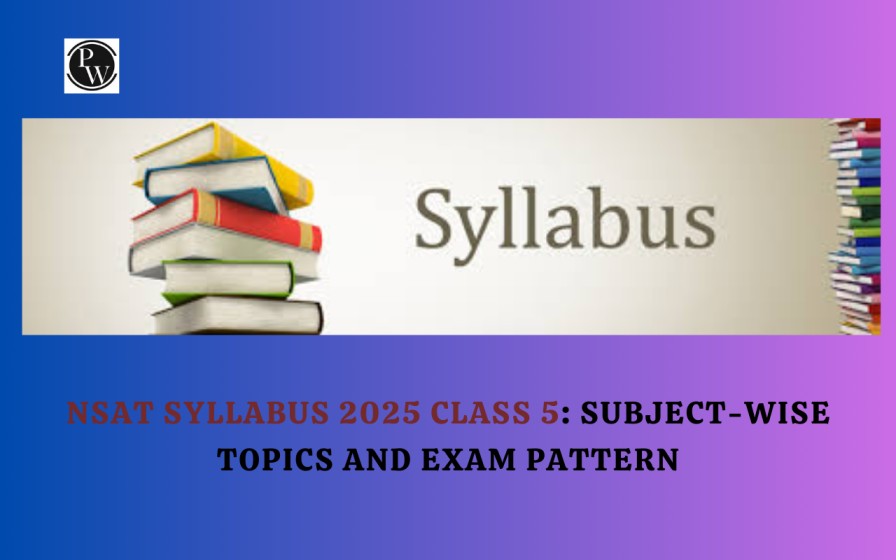
JEE Study Plan : Dropping a year to prepare for the IIT-JEE can be a pivotal decision in the academic journey of candidates. It offers them the opportunity to refine their knowledge, address previous shortcomings, and aim to secure a seat in the top engineering institutes of India. To make the most of this crucial year, aspirants must create and follow a well-structured JEE study plan.
To help JEE droppers in this regard, we have provided an effective study plan that is crucial for thoroughly covering syllabus topics.
JEE Study Plan for Dropper Mathematics
Mathematics is a conceptual subject that requires students to understand each principle to solve JEE questions comprehensively. The following points elaborate on the Mathematics study plan for JEE droppers:
-
Understanding the Basics
In the initial phase of Maths preparation, students must focus on establishing a robust foundation. This includes covering core concepts, specifically calculus, algebra, coordinate geometry, etc. It is imperative to ensure that candidates clearly understand these fundamental topics to grasp advanced topics.
Besides understanding the topics, droppers should dedicate ample time to enhance concept application and problem-solving. Regular practice is key to improving speed and accuracy. Therefore, they must work on various types of questions, ranging from the basics to more tricky ones.
-
Solving Problems
After gaining a basic understanding of JEE Maths syllabus chapters, aspirants should focus on revising each chapter and solving multiple sample questions and textbook problems. Additionally, they should develop concise, topic-wise notes that encapsulate key formulas and concepts. These notes serve as invaluable resources for quick revisions and retaining critical information.
To further enhance preparation, aspirants must prioritize solving previous years' questions as they provide insights into the JEE exam pattern and question types. Additionally, solving problems that range in complexity boosts confidence and prepares them to solve tricky questions during the actual exam.
-
Revision and Mock Test
In the final phase of the JEE study plan for droppers, it is essential to understand the actual exam environment. Although most dropper candidates have the experience of appearing for the actual exam, participation in JEE mock tests further refines their strategy to solve all the questions during the exam duration. Additionally, these tests serve as the ultimate evaluative tool to gauge one’s readiness for the JEE Maths section.
JEE Study Plan for Dropper Physics
Physics demands a profound comprehension of concepts and their practical applications in various real-world scenarios and numeral problems. To master the JEE Physics syllabus topics, aspirants must cultivate a comprehensive understanding of fundamental principles and avoid rote memorization.
Here are the Physics preparation strategies dropper aspirants must include in their JEE study plan:
-
Covering the Fundamental Concepts
Although JEE dropper aspirants understand most syllabus topics, they must consider covering the fundamental concepts at the beginning of their preparation. To further reinforce their foundation, they must focus on practical applications of the concepts and equations for problem-solving. This practical knowledge ensures that they understand the theories and how to apply them to real-life situations, which is a crucial skill for excelling in the JEE physics section.
-
Note Making
Besides covering Physics chapters, aspirants must also focus on creating their notes. This practice helps reinforce their knowledge, which is imperative to recall particular topics during the exam quickly. While preparing notes, aspirants should highlight important points or formulas. This way, they can quickly revise the entire syllabus before the exam.
-
Solving Problems
Another strategy for the JEE study plan includes extensive practice in solving different questions. Physics is a section that includes both theoretical and numerical questions. Therefore, candidates must ensure to master both types of questions. They should refer to NCERT textbooks, sample papers, DPPs, and previous year’s questions.
If students encounter difficulty solving Physics questions, they must seek guidance from their coaching faculties or experts, which helps clarify a doubt or misunderstanding they may have regarding a chapter or concept. Practicing a multitude of numerical problems, placing a strong emphasis on conceptual clarity and effective problem-solving techniques.
-
Revision and Mock Test
In the final phase of the JEE study plan for Physics subject, aspirants should thoroughly revise the entire syllabus and take multiple mock tests. This strategy helps fortify learned topics and assess one’s preparedness for the exam. The analysis report provided at the end of mock tests assists students in determining their strengths and areas for improvement. These tests serve as the ultimate benchmark for their performance.
JEE dropper aspirants should devote time to improving their speed, accuracy, and time management skills to make the most of these tests. Dedicated practice and effective post-test analysis enhance their Physics skills and build confidence to solve tricky questions during JEE.
JEE Study Plan for Dropper Chemistry
Chemistry mostly includes different types of reactions, chemical processes, and equations. Generally, Chemistry is considered the highest-scoring subject in the JEE exam. When preparing for JEE chemistry, aspirants must thoroughly understand and grasp all the terminologies, symbols, and diagrams.
To effectively enhance JEE preparation, dropper aspirants must include the following in their JEE study plan:
-
Understand and Memorise Reactions
To start JEE Chemistry preparation, aspirants must focus on understanding and memorizing reactions. Most questions in the JEE Chemistry section are based on reactions, equations, and chemical transformations. To excel in this subject, it's imperative to not only memorize these reactions but also comprehend their underlying principles.
In addition, aspirants should learn to break down complex reactions into their constituent components and understand the role of each reactant and product. Visual aids, such as reaction mechanisms and diagrams, can aid in grasping the sequence of events. By combining memorization with comprehension, students can accurately solve various questions in the JEE Chemistry section.
-
JEE Study Plan for Dropper Chemistry
Chemistry mostly includes different types of reactions, chemical processes, and equations. Generally, Chemistry is considered the highest-scoring subject in the JEE exam. When preparing for JEE chemistry, aspirants must thoroughly understand and grasp all the terminologies, symbols, and diagrams.
To effectively enhance JEE preparation, dropper aspirants must include the following in their JEE study plan:
-
Understand and Memorise Reactions
To start JEE Chemistry preparation, aspirants must focus on understanding and memorising name reactions . Most questions in the JEE Chemistry section are based on reactions, equations, and chemical transformations. To excel in this subject, it's imperative to not only memorise these reactions but also comprehend their underlying principles.
In addition, aspirants should learn to break down complex reactions into their constituent components and understand the role of each reactant and product. Visual aids, such as reaction mechanisms and diagrams, can aid in grasping the sequence of events. By combining memorisation with comprehension, students can accurately solve various questions in the JEE Chemistry section.
-
Make Notes of the Important Points
Effective note-taking is a vital component of JEE Chemistry preparation. While studying, JEE dropper aspirants must create concise, organised notes that encapsulate essential concepts, formulas, and reaction mechanisms. These notes serve as a handy reference during the revision sessions.
One must ensure these notes are well structured and include easily understandable language to enhance comprehension. Organising these notes by topic or sub-topic makes it effortless to locate specific information when needed.
-
Focus on Revision
Chemistry involves a plethora of concepts, reactions, and chemical structures. Regular revision ensures aspirants effectively memorise these intricate details. To enhance JEE preparation, they must create a revision schedule that encompasses daily, weekly, and monthly reviews of previously covered topics.
-
Follow Tricks and Mnemonics to Boost Memory
Chemistry often presents numerous exceptions, rules, and intricate details that can be challenging to remember. To navigate this complexity, aspirants should employ mnemonic devices, acronyms, or memory aids to quickly recall specific details.
Mnemonics can be particularly helpful for remembering exceptions to rules or specific sequences in chemical reactions. Associating these memory aids with the corresponding concepts helps to simplify the memorisation process.
-
Solve Sample Questions and Mock Test
To improve problem-solving skills, it is essential to practise different types of questions provided in the sample papers and mock tests. These questions are meticulously created to align with the difficulty level of the JEE exam. Therefore, a thorough grasp of sample questions enhances aspirants’ chance to perform well in the actual exam.
JEE Study Plan: Regular Time-Table for Dropper
Crafting a well-structured schedule that strikes a balance between productivity and time efficiency is essential to crack JEE with a target score. While creating a daily timetable, aspirants must attempt to pay attention to all three subjects. Additionally, they must minimise distractions such as excessive social media usage or leisurely travel during their study routine.
The following table demonstrates a well-structures study routine droppers can follow to enhance their preparedness for JEE:
| Time | Activity |
| 6:30 am- 7:45 am | Wake up, breakfast, and other priorities |
| 7:45 am - 11:00 am | Take up challenging topics or new chapters |
| 11:00 am - 12 pm | Break to relax and freshen up mind |
| 12:00 pm - 2 PM | Solve sample questions or home assignments |
| 2:00 pm - 3:00 pm | Lunch, take a power nap, and get ready for coaching class |
| 3:00 pm - 5:00 pm | Attend coaching classes |
| 5:00 pm - 6:00 pm | Evening break |
| 6:00 pm - 9:00 pm | Cover less challenging chapters and solve related questions |
| 9:00 pm - 10:00 pm | Dinner and family time |
| 10:00 pm - 11:00 pm | Revision of the topics covers during the day |
| 11:00 pm | Sleep |
JEE Study Plan FAQs
Q1. Why creating a JEE study schedule is crucial for preparation?
Q2. How many hours should I dedicate to JEE preparation daily?
Q3. How can I create an effective study routine for JEE?
Q4. What is the most crucial factor droppers must consider before devising a JEE study plan?
Q5. Are NCERT textbooks crucial for JEE droppers?










